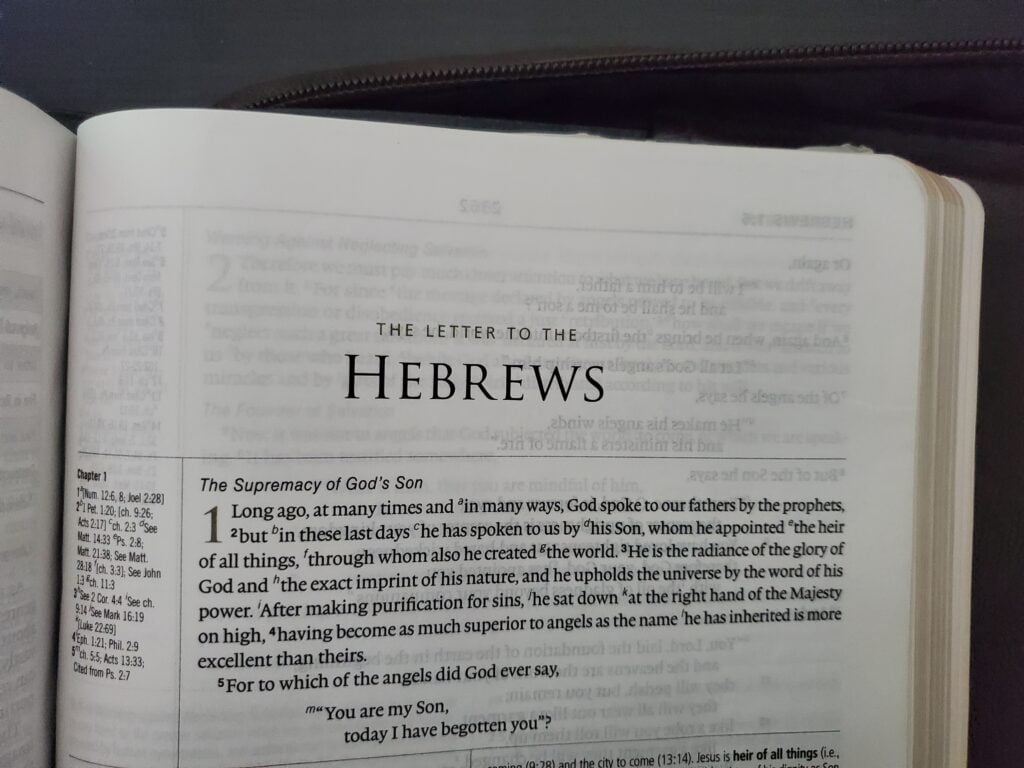⏱️ Estimated Reading Time: 8 min read
What did you expect when you became a believer? Did you have any idea what the Christian life would be like? Did you think things would be easier?
Read how the author of Hebrews urged the recipients of his letter to reflect on the early days of their Christian journey:
But recall the former days when, after you were enlightened, you endured a hard struggle with sufferings, sometimes being publicly exposed to reproach and affliction, and sometimes being partners with those so treated. (Hebrews 10:32–33)
It’s a stark picture of the realities that the disciples of Jesus faced in the first–century church. Persecution was common. It’s very possible the first encounters the Hebrews had with believers were in hidden rooms, side streets, and hushed courtyards, dodging the Judaizers’ spies and Roman authorities. Many who received this letter were among the Jews evicted from Rome by the emperor Claudius in 49 AD, and some perhaps even survived Nero’s reign of terror. As these believers surrendered to Christ, they knew they were getting themselves into a life of tribulation and affliction. Not unlike modern-day martyrs in China, North Korea, Afghanistan, or Somalia, they witnessed family, friends, or neighbors dragged off to beatings or death for proclaiming faith in Jesus, just as he prophesied (Matthew 24:9) and the apostles foretold (Acts 9:16). How is such endurance possible?
Enlightened
They were enlightened with a light that “shines out of darkness . . . into our hearts to give the light of the knowledge of the glory of God in the face of Jesus Christ” (2 Corinthians 4:6). Charles Wesley paints a word picture of the glorious moment when a believer is born:
Long my imprisoned spirit lay
Fast bound in sin and nature’s night;
Thine eye diffused a quickening ray,
I woke, the dungeon flamed with light;
My chains fell off, my heart was free,
I rose, went forth, and followed Thee.
My chains fell off, my heart was free,
I rose, went forth, and followed Thee.
(And Can It Be?)
Impurity, impotence, and unrighteousness in the heart of a sinner is exposed by this light, but so also is Christ, as Isaiah 33:17a proclaims, “Your eyes will behold the king in his beauty.” The light reveals his salvation, the doctrines of the gospel, and glimpses of glory. So much gained when his eye diffuses that quickening ray! Jesus shines in us before the world. And the world despises us because of him.
A second meaning of enlightenment proceeds from the application of the first: When a sinner’s heart has been enlightened, his eyes are unveiled, and he sees the dark, lost world around him. Then he becomes a lamp that emits the divine brightness, warmth, and piercing truth of God into the darkness (Matthew 5:14-16).
Enduring and Exposed to Reproach
Those who love darkness, however, hate having their rebellious deeds exposed (John 3:19-21; 1 Corinthians 4:5; Philippians 2:15), and the response is a tsunami of mudslinging and retaliation, which is the world’s standard reaction when confronted with the blood of Christ and the humiliation of the cross. So Jesus also shines out of us before the world, which makes the world abhor and deride us even more.
Despite the claims of the prosperity gospel hucksters, life is not intended to be easy. All of the forces of hell have always lined up in opposition against the church, the bride of Christ. We weaken and fall, vanquished failures before a watching world, but in 2 Corinthians 12:9, God says, “My grace is sufficient for you, for my power is made perfect in weakness.” Joy, contentment, and peace are refined in the fires of affliction; our faith is strengthened as we rest in our dependency upon Jesus alone. In all this, our bridegroom, the king, is exalted and glorified.
It is one thing to endure hard struggle. It is another to be exposed to reproach. Reproach crushes the spirit. Many of us are willing to endure hardship as long as we can control the narrative about our courageous suffering for righteousness’ sake. How tempting it is to take to the blogosphere or the podcast airwaves with stories of our triumph over evil. But here the Lord reminds us that when we take on Christ, we take on his reproach as well.
This is a crucial step in the Lord’s transformation of his people; you could say it’s like a divine beauty treatment. So many cling to the culture’s fleeting valuations of power and influence when, to the King of the Universe, nothing is more beautiful or worthy than the glowing, affliction–ravaged face of his bride. More than a master sculptor chipping away at a hunk of concrete to create a masterpiece—that is power over the medium. This is love. Jesus tenderly prepares us for the heavenly wedding feast, converting the mud slung in reproach into a sanctifying beauty treatment that softens the heart and fortifies the soul. His glorious light shines through.
When I have been misrepresented, maligned, and slandered, I want to strike back using the weapons of our age: delete, hide, ignore, unfriend, cancel, gaslight. I hate that I am made to look the fool, but that’s what Paul said we are called to be: “fools for Christ” (1 Corinthians 4:13). It is God’s plan that we be paraded before the mocking world as spectacles, laughingstocks, and oddities. As Christ himself was, so his bride will be deemed unlovely and undesirable, banned from the world’s feasts and platforms. He asked his Father to take the humiliation and reproach from him—oh, how we want that, too!—but he surrendered his will for the love of his bride. He humbled himself, taking on flesh and living this lowly life as a man, dying a horrific death, innocent though wrapped in our iniquity, and bearing our shame and the wrath we deserved (Philippians 2:5-8).
His reproach was brutal, crushing, curse–riddled. He was rejected and made unloveable, yet his sacrifice is an exquisite frame for his love for us. What the world says about us does not matter. The world is not the arbiter of truth, love, beauty, and worth. Our Savior is.
Partner
In affliction, the Lord requires us to learn brokenness so that he can use us in partnership with one another. Our greatest value is as weak and valueless earthen vessels that, when crushed for his sake, exude the aroma of his sacrifice and diffuse the light of heaven. These brothers and sisters who many of us have found ourselves in conflict with this year are the ones Jesus has chosen for us to endure with and to partner with in reproach and affliction, to be a lamp in the world, dispersing darkness in the hearts of men. His love enables us to come alongside them, considering them more highly than ourselves, caring more for them than for politics, platform, or sphere of influence. In our contentment to endure many struggles, we embolden our fellow pilgrims in their faith (Philippians 1:14), and in time, we discover many brothers made for adversity ready to partner with us when we are mistreated (Proverbs 17:17).
So, when hard struggles come and the mud balls fly through the air, what do we do? We point out the beauty of Christ shining forth in those around us. Perhaps we aid and comfort when another has been struck with a particularly harsh word or unkindness. Sometimes we may need to step in between our companions and the mudslingers to deflect an attack, the glow from our light drawing fire instead. We should be ready to exhort them not to forsake the course when false promises and sketchy beauty treatments tempt them, and we rehearse and sing with them the words of the psalmist, “You, Lord, keep my lamp burning; my God turns my darkness into light” (Psalm 18:28).
The Hebrews correspondent asked the enlightened recipients to recall their struggles, the reproach, and the companionship they shared, and yet the person and work of Christ is not even mentioned in this passage. This doesn’t mean, however, that our bridegroom is not there. His character is revealed in their suffering, where we see his infinite mercy softening the worry lines around the face of his bride. We are humbled by his unparalleled condescension on our behalf and so we can endure reproach, knowing it is only a part of the sanctification that he has planned for us, to prepare us for heaven. And his boundless love fuels our partnership with our brothers and sisters whether it is marked by triumph or pain.
Jesus promises that he will always be with us, in every situation, and we look forward to being with him at the marriage feast, made ready for the day by the patiently administered and divinely decreed beauty treatment of affliction.




